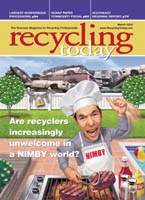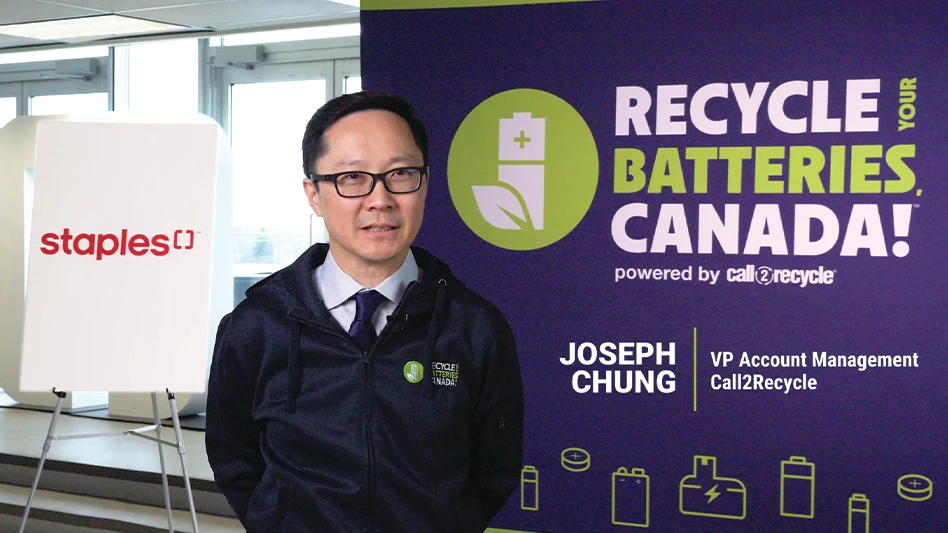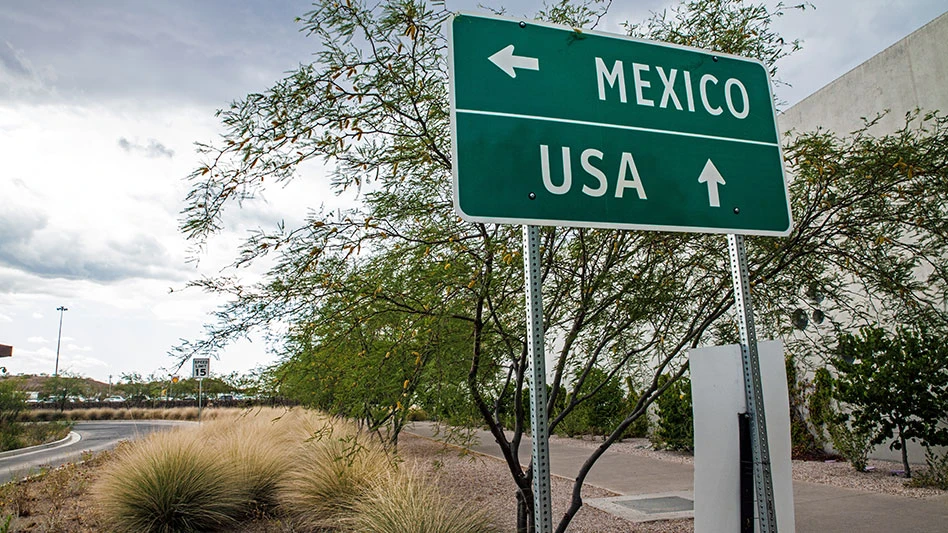A BIGGER, BETTER BOTTLE BILL FOR NEW YORK?
The Bigger, Better Bottle Bill Coalition (BBBBC) believes changes to New York’s current bottle bill would make the law more effective.
The changes proposed by the BBBBC include expanding the law to include non-carbonated beverage containers, such as bottled water, teas and juices; increasing deposits from 5 cents to 10 cents; and allocating unredeemed deposits to an Environmental Protection Fund to support recycling and waste prevention efforts state-wide.
Laura Haight, senior environmental associate of the New York Public Interest Research Group (NYPIRG) and BBBBC coordinator, says the coalition hopes to build on the success of the current bottle bill by expanding its reach to other non-carbonated beverages. However, Haight says the expanded bill will not include wine and liquor containers because that would involve infrastructure changes, as these beverages are sold only in liquor stores, not in the grocery stores that are affected by the current bottle bill.
"We’re arguing that the systems are in place," she says of this decision. "We’re expanding on what we already have."
Haight says that since the bottle bill was implemented on July 1, 1983, the average redemption rate has been 75 percent, with a peek of 80 percent in ‘84/‘85. The current rate of 69 percent marks the lowest recovery rate since the bottle bill’s implementation.
"We’re waiting with keen interest to see if Gov. George Pataki will include the [unredeemed deposit] revenue in the January 29 budget," Haight says. She adds that if the state were to implement the three proposed changes, the unredeemed deposits would total roughly $167 million a year.
"When you look at the crisis in local cities, there’s real logic in trying to find more money to bolster programs," Haight says.
The BBBC is made up of more than 100 environment, labor, government and business groups, including the American Littoral Society, the Natural Resources Defense Council and the New York State Association of Reduction, Reuse and Recycling. Those seeking additional information on the bottle bill effort can contact Haight at lhaight@nypirg.org.
DIVERSITY MAY BE KEY TO WASTE DIVERSION
California State University, Sacramento, Professor Dennis H. Tootelian, Ph.D., has completed a study titled Minority Communities and the Waste Stream commissioned by the California Integrated Waste Management Board. It examines the relationship between cultural diversity and the success of local waste diversion programs.
The study outlines several issues that need further analysis "if diversion rates are to rise, diverse populations are to be served appropriately and environmental justice is to be achieved," Tootelian concludes.
The study analyzed diversity and diversion rates in five geographic areas: the Bay Area (Alameda, Contra Costa, Santa Clara counties), San Francisco County, the greater Sacramento Area (El Dorado, Placer, Sacramento counties), Los Angeles County and Orange County. The report can be downloaded from the Waste Board’s Web site at www.ciwmb.ca.gov/Publications/default.asp?pubid=984.
FORT WORTH CONSIDERS PAY-AS-YOU-THROW
The City Council of Fort Worth, Texas, has tentatively approved a new pay-as-you-throw fee schedule.
According to the Forth Worth Star Telegram, beginning this summer residents will pay for weekly collection based on the size of the garbage cart they select from the city: $8 for a 32-gallon cart; $13 for a 64-gallon cart; or $18 for a 96-gallon cart.
The pay-as-you-throw fee schedule will replace the current flat monthly rate of about $13.75 for collections twice a week.
City Councilman Jeff Wentworth recommended that Council approve the new rates. Projections estimate that 63 percent of Fort Worth households will have a reduction in their bills, he added.
Sponsored Content
Labor that Works
With 25 years of experience, Leadpoint delivers cost-effective workforce solutions tailored to your needs. We handle the recruiting, hiring, training, and onboarding to deliver stable, productive, and safety-focused teams. Our commitment to safety and quality ensures peace of mind with a reliable workforce that helps you achieve your goals.
Sponsored Content
Labor that Works
With 25 years of experience, Leadpoint delivers cost-effective workforce solutions tailored to your needs. We handle the recruiting, hiring, training, and onboarding to deliver stable, productive, and safety-focused teams. Our commitment to safety and quality ensures peace of mind with a reliable workforce that helps you achieve your goals.
Sponsored Content
Labor that Works
With 25 years of experience, Leadpoint delivers cost-effective workforce solutions tailored to your needs. We handle the recruiting, hiring, training, and onboarding to deliver stable, productive, and safety-focused teams. Our commitment to safety and quality ensures peace of mind with a reliable workforce that helps you achieve your goals.
Sponsored Content
Labor that Works
With 25 years of experience, Leadpoint delivers cost-effective workforce solutions tailored to your needs. We handle the recruiting, hiring, training, and onboarding to deliver stable, productive, and safety-focused teams. Our commitment to safety and quality ensures peace of mind with a reliable workforce that helps you achieve your goals.
Sponsored Content
Labor that Works
With 25 years of experience, Leadpoint delivers cost-effective workforce solutions tailored to your needs. We handle the recruiting, hiring, training, and onboarding to deliver stable, productive, and safety-focused teams. Our commitment to safety and quality ensures peace of mind with a reliable workforce that helps you achieve your goals.
Sponsored Content
Labor that Works
With 25 years of experience, Leadpoint delivers cost-effective workforce solutions tailored to your needs. We handle the recruiting, hiring, training, and onboarding to deliver stable, productive, and safety-focused teams. Our commitment to safety and quality ensures peace of mind with a reliable workforce that helps you achieve your goals.
Sponsored Content
Labor that Works
With 25 years of experience, Leadpoint delivers cost-effective workforce solutions tailored to your needs. We handle the recruiting, hiring, training, and onboarding to deliver stable, productive, and safety-focused teams. Our commitment to safety and quality ensures peace of mind with a reliable workforce that helps you achieve your goals.
The paper quotes Assistant City Manager Libby Watson as saying, "The greater difference between the rates, the greater the recycling. And it allows larger carts . . . for those who absolutely refuse to take part in recycling."
According to the Star Telegram, Fort Worth currently recycles roughly 6 percent of household trash, despite a statewide goal of 40 percent.
Dot Kent, public education specialist for the city’s Environmental Management Department, told the paper that the recycling goal for the first year of the program is 20 percent.
No fee will be charged for the collection of recyclables, and each household will receive a 64-gallon cart for those items during February and March.
A pilot program involving about 8,000 households has been using the cart system for about four years.
Get curated news on YOUR industry.
Enter your email to receive our newsletters.

Explore the March 2003 Issue
Check out more from this issue and find your next story to read.
Latest from Recycling Today
- SABIC’s Trucircle PE used for greenhouse roofing
- Hydro to add wire rod casthouse in Norway
- Hindalco to invest in copper, aluminum business in India
- Recycled steel price crosses $500 per ton threshold
- Smithers report looks at PCR plastic’s near-term prospects
- Plastics association quantifies US-EU trade dispute impacts
- Nucor expects slimmer profits in early 2025
- CP Group announces new senior vice president






